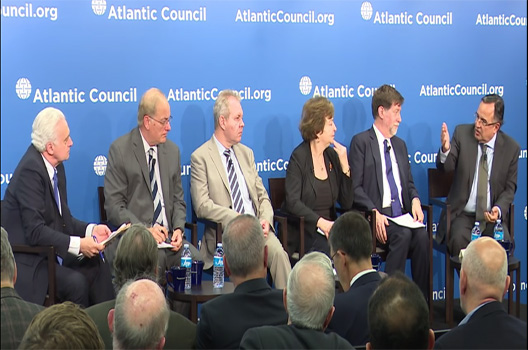 Despite calls for cooperation, the United States and Russia are unlikely to form an effective alliance in Syria due to their sharply diverging goals, regional experts and ex-officials said at the Dinu Patriciu Eurasia Center’s event “The Kremlin’s Actions in Syria: Origins, Timing, and Prospects” on November 11. Whereas the United States has prioritized establishing a transitional government in Syria, Russia stands strongly behind President Bashar al-Assad as part of a policy designed to both boost Moscow’s prestige abroad and distract from domestic issues, panelists agreed.
Despite calls for cooperation, the United States and Russia are unlikely to form an effective alliance in Syria due to their sharply diverging goals, regional experts and ex-officials said at the Dinu Patriciu Eurasia Center’s event “The Kremlin’s Actions in Syria: Origins, Timing, and Prospects” on November 11. Whereas the United States has prioritized establishing a transitional government in Syria, Russia stands strongly behind President Bashar al-Assad as part of a policy designed to both boost Moscow’s prestige abroad and distract from domestic issues, panelists agreed.
The United States might be able to exert more leverage over Putin should it decide on a more aggressive Syria policy, with several panelists advocating the establishment of safe zones within Syria. However, panelists also noted that the Obama administration is unlikely to pursue a more aggressive policy for fear of a repeat of the trauma of the Iraq war. Experts on the panel recommended that if the United States truly wants a solution it should seek to orchestrate a “grand bargain,” allowing the many different sides to compromise on their goals in Syria.
Panel I: The Evolution of the Syria Crisis and Russia Policy
Panel II: Moscow’s New Policy: Impact and Prospects
